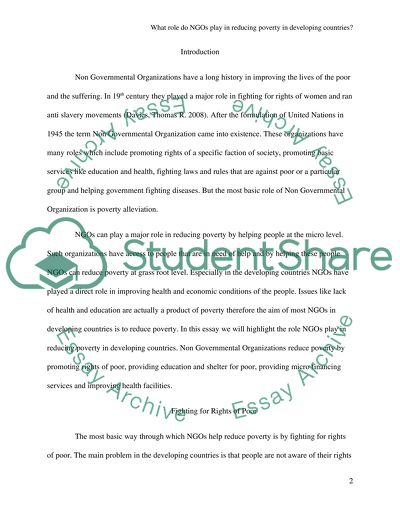Cite this document
(“What role do NGOs play in reducing poverty in developing countries Essay”, n.d.)
Retrieved from https://studentshare.org/macro-microeconomics/1428721-what-role-do-ngos-play-in-reducing-poverty-in-developing-countries
Retrieved from https://studentshare.org/macro-microeconomics/1428721-what-role-do-ngos-play-in-reducing-poverty-in-developing-countries
(What Role Do NGOs Play in Reducing Poverty in Developing Countries Essay)
https://studentshare.org/macro-microeconomics/1428721-what-role-do-ngos-play-in-reducing-poverty-in-developing-countries.
https://studentshare.org/macro-microeconomics/1428721-what-role-do-ngos-play-in-reducing-poverty-in-developing-countries.
“What Role Do NGOs Play in Reducing Poverty in Developing Countries Essay”, n.d. https://studentshare.org/macro-microeconomics/1428721-what-role-do-ngos-play-in-reducing-poverty-in-developing-countries.


